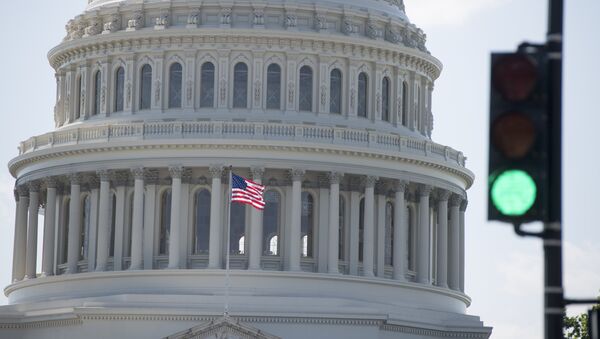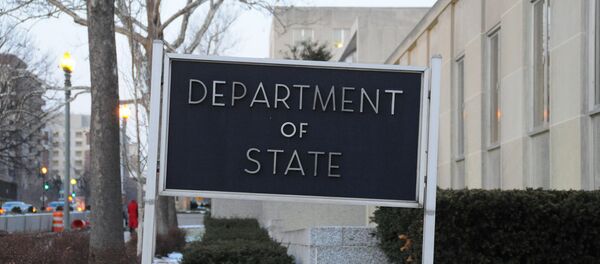"Restriction of journalists could turn out to be colossally bad idea," retired Brown University Assistant Professor of Economics Barry Friedman said.
US Congressman David Cicilline and co-chair of the Democratic Policy and Communications Committee Congressman Matthew introduced legislation Gaetz last week to close a loophole in foreign agent registration requirements that they claimed the media putlet "Russia Today exploited during the 2016 presidential election.
However, Friedman observed that there was no evidence of mainstream Russian journalists distorting or inventing news and they had not acted in any disruptive or subversive way either.
"When were Russian journalists associated with violent outbreaks here? Let them show the divisions and social problems here," Friedman asked.
Russian media coverage in the United States gave voice to sources and groups who were being insufficiently heeded by the mainstream media, Friedman maintained.
"It helps to show the competing viewpoints and chances for minorities to be heard," he said.
University of Rhode Island Professor of Peace Studies Nicolai Petro warned that the proposed new legislation was dangerous because it could give the US government the freedom to intimidate and unfairly influence news organizations from other countries operating within the United States.
"As I understand the purpose of this bill, it is to give the Department of Justice greater leeway to investigate foreign entities for possible violations of the FARA [Foreign Agents Registration Act]. It opens the door to the intimidation of foreign media outlets by labelling them as ‘propaganda’," he said.
Already the US media was indiscriminately accusing Russian news organizations such as RT and Sputnik of being just propaganda platforms but the same justification could then be used to suppress any other independently-minded foreign news body, Petro warned.
"Today, this label is applied to RT and Sputnik, but tomorrow it can just as easily be applied to any media outlet that receives funding from state sources," he said.
"It would no doubt surprise the congressmen to learn that a substantial percentage of Western European media outlets receive such funding," Petro said.
The only possible outs come of introducing such legislation was to sharply restrict the freedom of the American people to get their information from where-ever they wanted, Petro predicted.
"Ultimately, therefore, it is a rather crude attempt to restrict the ability of Americans to gain access to information that these congressmen hope to suppress," he said.
Like many such attempts, the proposed legislation revealed a dismaying level of ignorance about modern technology and about the role that information sharing plays in the modern world, Petro said.



